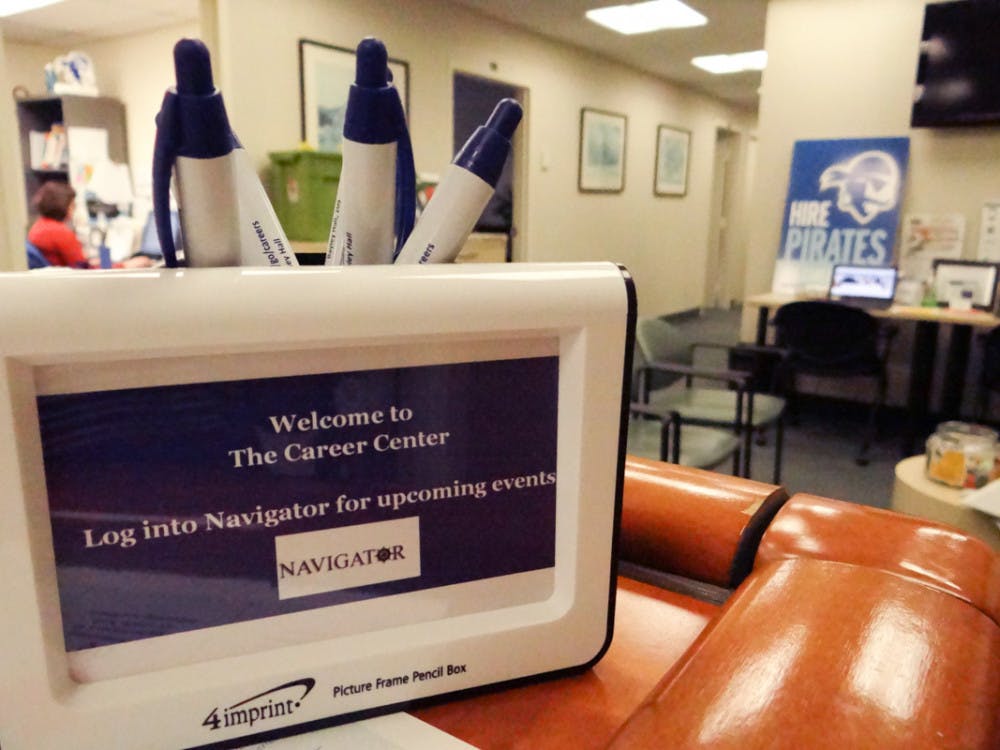In 2015, the American Community Survey found that 64.8 percent of Americans with disabilities aged 21 to 64 were unemployed.
The survey was based on responses from 198,395 participants and included disabilities ranging from hearing and vision difficulties, to independent living difficulties. Comparatively, the unemployment rate for adults in the same age range without a disability was 21.7 percent.
[caption id="attachment_20845" align="aligncenter" width="838"] The Career Center encourages students with disabilities to meet with an advisor to learn about opportunities after graduation.
The Career Center encourages students with disabilities to meet with an advisor to learn about opportunities after graduation.
Amanda Courtney/ Staff Photographer[/caption]
According to Angela Millman, director of Disability Support Services (DSS), this trend is indicative of a larger problem: underrepresentation of people with disabilities in the professional world. However, she explained that there is a possible solution to this issue.
“I believe students with disabilities need to take advantage of all the resources we provide at SHU career planning, internships (and more),” Millman said. “Students also need to become accustomed to advocating for themselves.”
She added that education levels play an important role in obtaining a job. In fact, obtaining some level of higher education can provide a more even playing field in the job market.
Gabriel Fiore, a graduate student pursuing his master’s degree in public relations, worked on a campaign for employment for people with disabilities last spring in the final semester of his undergraduate career. Partnering with the company Spectrum Works, which seeks to place people with autism into suitable jobs, Fiore and a team of PR students worked to spread awareness of vast unemployment in the autism community.
Fiore explained that often companies do not give people with disabilities a chance to prove themselves. He said that these individuals are capable of learning just like any other person and companies are putting themselves at a disadvantage by not hiring them.
Millman seemed to agree with this sentiment. “Unfortunately, I believe people with disabilities still have to fight stereotypes and prejudice in their quest to obtain employment (proportionate to) their education,” she said.
However, Millman said many companies recognize the value and potential in people with disabilities. Many have actively sought to hire them.
In fact, DSS notifies students when the Career Center posts jobs or internships specifically for people with disabilities. Millman said that this practice has helped a number of students find work after college.
According to Nancy Borkowski, associate director of the Career Center, the Workforce Recruitment Program is an important resource coordinated by the Career Center. The program is an initiative by the Federal Government that matches qualified students with disabilities to full-time jobs or summer internships in government agencies.
However, Borkowski still encourages students to meet with their Career Center advisor as they can help ensure students are prepared for the working world ahead.
Julie Trien can be reached at julie.trien@student.shu.edu.





